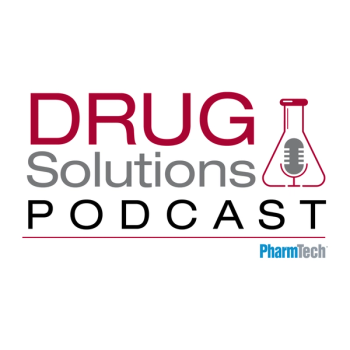
STADA and Alvotech have launched Uzpruvo in Europe, making it the first approved biosimilar to Stelara (ustekinumab) in the European market.

STADA and Alvotech have launched Uzpruvo in Europe, making it the first approved biosimilar to Stelara (ustekinumab) in the European market.

An additional 11 medicines were recommended for extension of therapeutic indications, while one negative opinion was issued.

The questions come as FDA is revisiting best practices for advancing the development of new biosimilar products under the terms of its updated Biosimilars Action Plan.

GSK's MAA is supported by an interim analyis of Phase III trials, which demonstrated significant progression-free survival benefit and positive overall survival trends from Blenrep combination therapies.

Combination products may be reviewed in a single application or in separate applications for each constituent part, and in rare cases, FDA may decide which type of application process is appropriate.

While the document does not address treatment or prevention of the long-term complications of ulcerative colitis or Crohn’s disease in children, it aims to help sponsors developing drugs for pediatric patients currently affected.

PRAC is recommending that patients who use glucagon-like peptide-1 receptor agonists (GLP-1 RAs) consider the risk of delayed gastric emptying before undergoing surgery with general anesthesia or deep sedation.

Roche voluntarily recalled Susvimo’s ocular implant, insertion tool, and initial fill kit when test results did not satisfy company standards.

Other indications for which the Sanofi treatment has been approved include atopic dermatitis, asthma, and chronic rhinosinusitis.

This paper reflects upon the past 15 years of experience in the application of QRM and KM within the pharmaceutical GMP environment.

Kisunla (donanemab-azbt) reduced amyloid plaques in Phase III study participants by 84% after 18 months.

A greater number of patients with Duchenne muscular dystrophy will be able to be treated after FDA's approval of a gene therapy.

GSK’s application for using Jemperli (dostarlimab) plus chemotherapy for all adult patients with primary advanced or recurrent endometrial cancer has been accepted by the EMA.

EMA’s CHMP gave positive opinions on a nasal delivery for epinephrine and for a first-in-class medicine to treat pulmonary arterial hypertension, among others, including a biosimilar for treatment of autoimmune diseases.

The seven chosen sponsors will help accelerate development of novel drugs and biologics for rare diseases.

Results of a Phase III trial showed that Tagrisso with the addition of chemotherapy reduced the risk of disease progression or death associated with EGFR-mutated non-small cell lung cancer by 44%.

Fruzaqla was previously approved for use in patients with metastatic colorectal cancer in the US in November 2023.

Diversity Action Plans are now required to be submitted by medical product sponsors after changes governed by the Food and Drug Omnibus Reform Act.

Sarepta Therapeutics received expanded approval from FDA for Elevidys in the treatment of DMD in non-ambulatory patients as ell as ambulatory patients.

Yoni Tyberg, associate director of the Special Program Staff in the Office of New Drugs, provided an update on efforts to modernize CDER processes.

FDA has approved argenx's VYVGART Hytrulo for a new indication, treating chronic inflammatory demyelinating polyneuropathy.

In this episode, Hanns-Christian Mahler from ten23 Health chats about the advances in fill/finish.

This alert follows a similar one from the European Medicines Agency in October 2023 amid a rise in demand for the diabetes medication that, in turn, created a shortage.

Imfinzi (durvalumab) combined with chemotherapy decreased the risk of disease progression or death by 58% in a 700-patient trial.

PRAC is reviewing the risk of secondary malignancies in patients treated with CAR T-cell medicines.